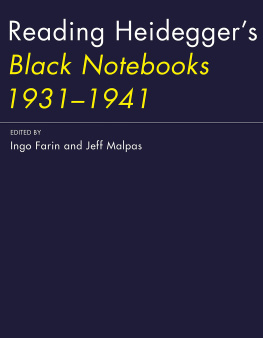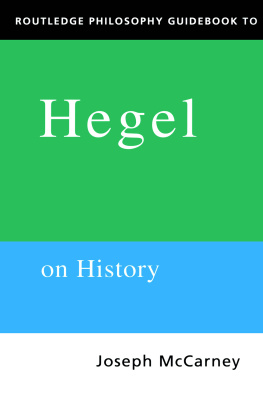Ponderings VIIXI
Studies in Continental Thought
EDITOR
JOHN SALLIS
CONSULTING EDITORS
Robert Bernasconi
John D. Caputo
David Carr
Edward S. Casey
David Farrell Krell
Lenore Langsdorf
James Risser
Dennis J. Schmidt
Calvin O. Schrag
Charles E. Scott
Daniela Vallega-Neu
David Wood
Martin Heidegger
Ponderings VIIXI
Black Notebooks 19381939
Translated by
Richard Rojcewicz

This book is a publication of
Indiana University Press
Office of Scholarly Publishing
Herman B Wells Library 350
1320 East 10th Street
Bloomington, Indiana 47405 USA
iupress.indiana.edu
Published in German as Martin Heidegger Gesamtausgabe 95: berlegungen VIIXI
(Schwarze Hefte 19381939), edited by Peter Trawny
2014 by Vittorio Klosterman GmbH, Frankfurt am Main
English translation 2017 by Indiana University Press
All rights reserved
No part of this book may be reproduced or utilized in any form or by any means, electronic or mechanical, including photocopying and recording, or by any information storage and retrieval system, without permission in writing from the publisher. The Association of American University Presses Resolution on Permissions constitutes the only exception to this prohibition.
The paper used in this publication meets the minimum requirements of the American National Standard for Information SciencesPermanence of Paper for Printed Library Materials, ANSI Z39.481992.
Manufactured in the United States of America
Cataloging information is available from the Library of Congress.
ISBN 978-0-253-02471-8 (cloth)
ISBN 978-0-253-02503-6 (e-bk.)
1 2 3 4 5 22 21 20 19 18 17
CONTENTS
Translators Introduction
This is a translation of volume 95 of Martin Heideggers Gesamtausgabe (Complete Works). The German original appeared posthumously in 2014.
The volume is the second in the series publishing Heideggers Black Notebooks. These are small (ca. 5 7 in.) notebooks with black covers to which the philosopher confided sundry ideas and observations over the course of more than forty years, from the early 1930s to the early 1970s. The notebooks are being published in chronological order, and the five herein correspond to the years 19381939. In all, thirty-three of the thirty-four black notebooks are extant and will fill up nine volumes of the Gesamtausgabe.
Heidegger gave a title to each of the notebooks and referred to them collectively as the black notebooks. The first fifteen are all Ponderings. Their publication began in volume 94 with Ponderings II (Ponderings I is the lost notebook). The present volume includes the second five Ponderings, VIIXI. The publication of the extant Ponderings concludes in volume 96 with Ponderings XV.
As can be imagined regarding any notes to self, these journal entries often lack polished diction and at times are even cryptic. Nevertheless, the style and vocabulary are mostly formal, not to say stilted, and are seldom colloquial. This translation is meant to convey to an English-speaking audience the same effect the original would have on a German one, the degree of formality varying pari passu with Heideggers own. A prominent peculiarity of the style I was unable to render in full, however, is the extensive use of dashes. Heidegger often employs dashes not merely for parenthetical remarks but for any change in the direction of thought. Sometimes dashes separate subjects and predicates, and some dashes even occur at the end of paragraphs. Due to differences in English and German syntax, I could not include all the dashes without making for needless confusion and could not place them all at the exact points that would correspond to the original sentence. This admission is of course not meant to imply I did capture the varied styles of the notebooks in all other respects.
The pagination of the notebooks themselves is reproduced here in the outer margins. All of Heideggers cross-references are to these marginal numbers. The running heads indicate the pagination of the Gesamtausgabe edition. I have inserted myself into the text only to alert the reader to the original German where I thought it might be helpful (for example, as indicating a play on words I could not carry over into English) and to translate any Latin or Greek expressions Heidegger leaves untranslated. I have used brackets ([]) for these interpolations and have reserved braces ({}) for insertions by the editor. All the footnotes in the book stem either from me, and these few are marked as such, or from the editor and are then placed within braces.
I am indebted to Shane Ewegen for a careful review of the penultimate version of this entire translation and for helpful suggestions on improving the text.
Richard Rojcewicz
Ponderings VIIXI
PONDERINGS VII
The essence of the Germans:
That they may be chained to the struggle over their essence, for only inasmuch as they take up this struggle are they the people they alone can be.
Suitable for this struggle is only that which, with unwavering confidence).
One who encounters the distorted essence only negatively will also not ever be equal to the essence.
(Cf. p. 84.)
Nothing is in vainleast of all nothingness itself; for in it beyng delivers itself to its most unique uniqueness.
Like an errancy, beyng is riven through beings.
Those who have arrived too early must not depart too late.
Anyone who thinks ahead to future decisions must create a plightand must know that.
To be German: to project the most intrinsic burden of the history of the West and to bear that burden on ones shoulders. (Cf. p. 81.)
1
Rare in history are those thrusts (p. 19) which, although unrecognizable by their own era, permeate all beings and come to be in another spatiotemporal field of another beyng. It is still more rare for these thrusts to be recognized; the recognition consists in clearing the way for the trajectory of these projections and making ready those who project. Historiology almost always snatches up, i.e., parries, the projections.
Because historiology as a science arises out of a determinate form of Western historyout of the modern essence of historyhistoriology is therefore not a mere inconsequential superstructure taking cognizance of history by historybut instead is one of the essential paths on which history is made. This historical role of historiology is still not recognized, let alone grasped in its bearing for the decisive phase of modernity. Why does history employ the triviality of historiological science in order to achieve such an effectuation as must be presumed in the parrying of those thrusts? Does the history (of beings) indeed consist in the parrying of such thrusts of beyng?
Is it essential to the thrusts that within them that which thrusts, in thrusting and projecting, should conceal itself in self-refusal? Do we first surmise on this basis something of the history of beyng, whereby the essence of this history may be called the negative force of the hesitation of what is concealed and undecided of the appropriation into the decision?
2
The history (of beings) as the parrying of the thrusts of beyng. Such a parrying is culture, which not accidentally deteriorates into the gigantic form of the organization of lived experience. Schmeling lives [erlebt, has a lived experience of] the worldif only this were a mere inconsequential journalistic clich, if only the journalistic clich were not the most real reality and by no means simply a fleeting turn of phrase.
Next page



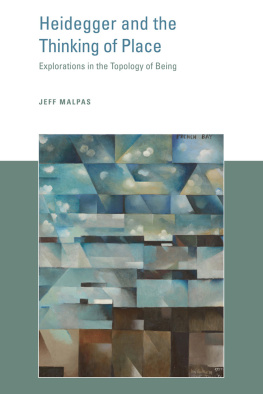
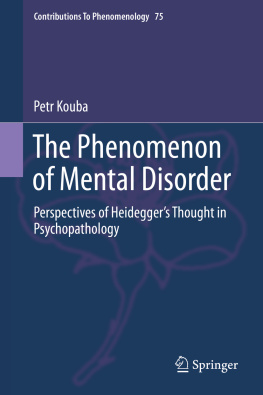
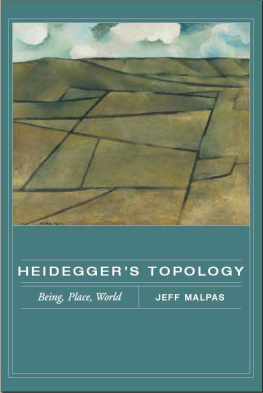
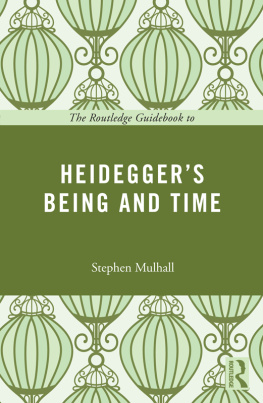
![Heidegger Martin - Ponderings. [1]: Black notebooks: Ponderings II-VI: black notebooks 1931-1938](/uploads/posts/book/212464/thumbs/heidegger-martin-ponderings-1-black.jpg)

